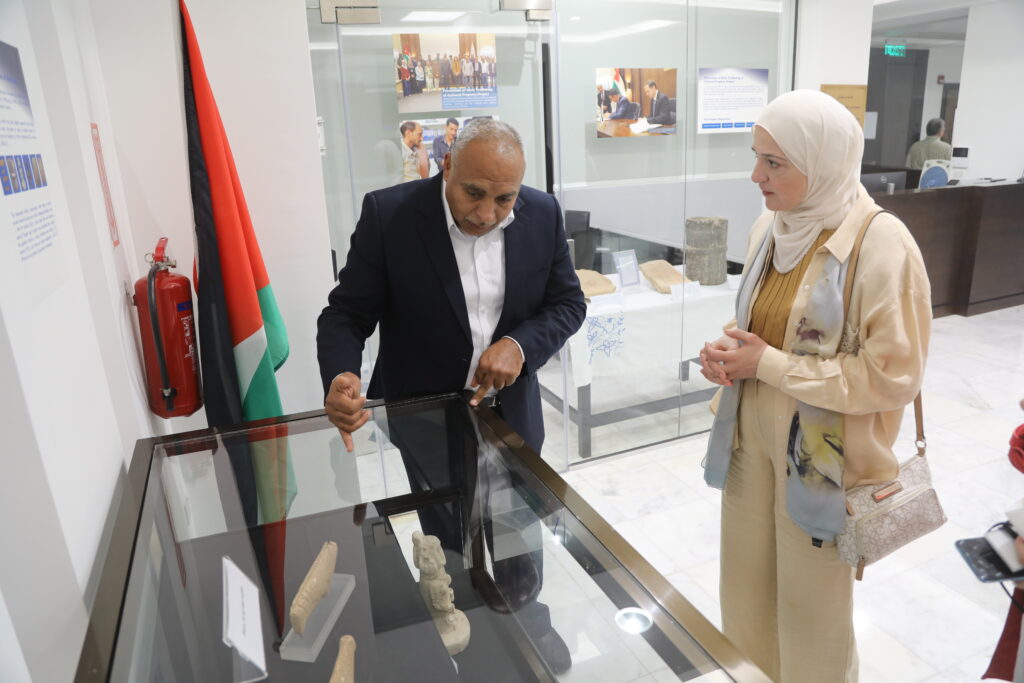October 13, 2022
In the presence of the Ambassador of the United States of America Henry T. Wooster, and Deputy Assistant Secretary Jennifer Gavito, the American Center of Research and Jordan’s Department of Antiquities held reception to launch the U.S. Department of State-funded project “Establishing a National Cultural Heritage Property Database in the Kingdom of Jordan.” The nine trafficked cultural antiquities that were returned to Jordan from the United States in March 2022 were displayed during the launch.
The initiation and launch of the project came in relation to the Memorandum of Understanding that was signed between the United States of America and Jordan on December 16, 2019, invoking the 1970 UNESCO Convention of the Means of Prohibiting and Preventing the Illicit Import, Export, and Transfer of Ownership of Cultural Property, to which both countries are party.
The project proposes to create and manage a national cultural heritage property inventory system for Jordan. After establishing the system with robust safeguards on the entry and modification of data, the project will achieve significant progress in populating the database, training government employees to use and maintain the database, and encouraging its use by other stakeholders working in the country.
In this collaborative effort with the Jordanian Department of Antiquities, the American Center will provide several essentials necessary for success, including: the demonstrated capacity to implement such complex projects, critical expertise and staffing, technological know-how, oversight and accountability, and a plan for long-term sustainability.
The project is made possible by the generous support of the American People through the United States Department of State. The content of this article is the responsibility of the American Center of Research and does not necessarily reflect the views of the Department of State or the United States Government.








